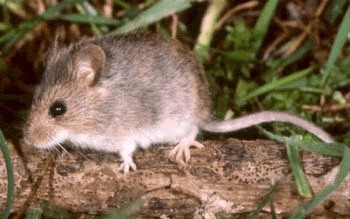By Gig Conaughton, County of San Diego Communications Office
A western harvest mouse collected in Escondido has tested positive for hantavirus and County officials are reminding people to never sweep or vacuum up after rodents if they find them in homes, garages, sheds and living spaces.
The mouse was collected by County Vector Control surveillance in routine monitoring. Vector Control monitors the populations of vectors — animals like ticks, rodents and mosquitoes — that can transmit diseases to people.
The main carriers of hantavirus are wild rodents, particularly wild mice.
Rodents shed the virus through their urine, droppings and saliva. Hantavirus can cause deadly infections in people and there is no vaccine or cure for it. People can be exposed to hantavirus by inhaling it in when infected urine, feces and saliva dries and is stirred into the air.
Because of that, Vector Control officials said if people find wild rodents or nests in living spaces like homes, garages and sheds, they should never sweep or vacuum up. Instead, if people have to clean, they should ventilate the areas and “wet clean,” using gloves, bags, and bleach and water solutions or disinfectants.
Hantavirus is common in San Diego County. This year, 36 wild rodents from various parts of the county have tested positive for hantavirus. Even so, people are generally unlikely to become exposed to wild rodents because those animals prefer to live away from people. However, wild rodents can seek shelter in homes, garages and sheds.
Here are tips for people to prevent being exposed to wild rodents and hantavirus, along with instructions for how to use wet-cleaning methods:
Avoid Exposure to Hantavirus
•Seal up all external holes in homes, garages and sheds larger than a dime to keep rodents from getting in.
•Eliminate rodent infestations immediately.
•Avoid rodent-infested areas and do not stir up dust or materials that may be contaminated with rodent droppings and urine.
•Clean up rodent droppings and urine using the wet cleaning method described below.
Use “Wet-cleaning” Methods to Prevent Inhaling the Virus
•Do not sweep or vacuum infested areas.
•Ventilate affected area by opening doors and windows for at least 30 minutes.
•Use rubber gloves. Spray a 10 percent bleach solution or other disinfectants onto dead rodents, rodent droppings, nests, contaminated traps, and surrounding areas and let the disinfectant stand for at least 15 minutes before cleaning.
•Clean with a sponge or a mop that has been soaked in disinfectant.
•Place disinfected rodents and debris into two plastic bags, seal them and discard in the trash.
•Wash gloves in a bleach solution, then soap and water, and dispose of them using the same double-bag method.
•Thoroughly wash your hands with soap and water.
For more information, contact the County Department of Environmental Health (DEH) at (858) 694-2888 or visit the DEH hantavirus web page.Gig Conaughton is a communications specialist with the County of San Diego Communications Office.


















